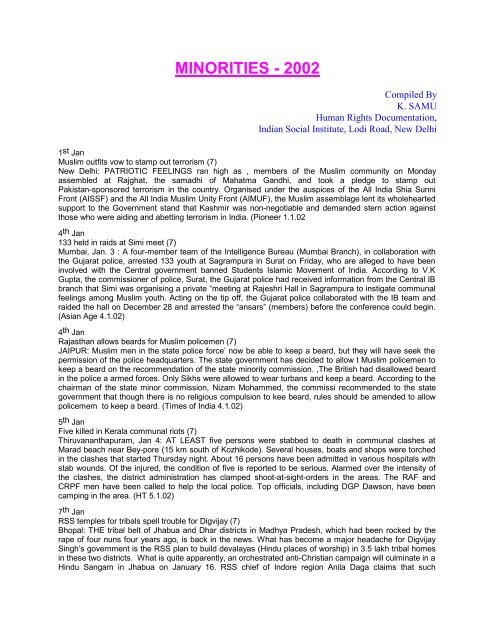Early marriage can have detrimental effects on individuals and communities. It can lead to limited educational opportunities and increased vulnerability to health risks.
Early marriage, defined as marriage before the age of 18, often results in the discontinuation of education, denying young individuals the chance to reach their full potential. Furthermore, it can lead to increased health risks for young brides, including complications during childbirth and teenage pregnancy.
Additionally, early marriage perpetuates cycles of poverty and limits economic development in communities. It is crucial to address the underlying factors that contribute to early marriage in order to protect the well-being and future prospects of young individuals. Early marriage can have detrimental effects on individuals and communities. It can lead to limited educational opportunities and increased vulnerability to health risks.
Early marriage, defined as marriage before the age of 18, often results in the discontinuation of education, denying young individuals the chance to reach their full potential. Furthermore, it can lead to increased health risks for young brides, including complications during childbirth and teenage pregnancy. Additionally, early marriage perpetuates cycles of poverty and limits economic development in communities. It is crucial to address the underlying factors that contribute to early marriage in order to protect the well-being and future prospects of young individuals.
Early Marriage Paragraph 100 Words
Early marriage refers to the practice of marrying at a young age, typically before the age of 18. It is a complex issue that has deep-rooted cultural, social, and economic factors. Many communities still hold onto the belief that early marriage is beneficial, as it is seen as a way to protect girls, preserve traditions, and alleviate poverty.
However, it is important to consider the negative impacts of early marriage, especially on the girls involved. Girls who marry early often face limited access to education, healthcare, and economic opportunities, which perpetuates a cycle of poverty and gender inequality.
Furthermore, early marriage can have severe physical and emotional consequences for young girls who are not yet physically or emotionally mature enough to handle the responsibilities and challenges of marriage. Efforts to end early marriage must focus on raising awareness, promoting education, empowering girls, and challenging societal norms and beliefs that perpetuate this harmful practice.
Early Marriage Paragraph 200 Words
Early marriage refers to the practice of getting married at a young age, typically when individuals are still in their teenage years. This issue has gained significant attention and has been a subject of discussion across various societies. The consequences of early marriage can be far-reaching and detrimental to the overall well-being of those involved.
One of the major concerns associated with early marriage is its impact on education and career prospects. When young individuals are married off at an early age, they are often forced to abandon their education, limiting their opportunities for personal and professional growth.
This not only hampers their own development but also perpetuates a cycle of limited opportunities for future generations. Early marriage can also result in health complications, particularly for young girls who are not physically prepared for childbirth. Childbearing at a young age can increase the risk of maternal and infant mortality, as well as other health issues such as obstetric fistula.
These physical and emotional burdens can have long-lasting effects on the well-being of the individuals involved. Furthermore, early marriage can perpetuate gender inequality and reinforce societal norms that limit the potential of women. When young girls are married off, they are often expected to fulfill traditional gender roles, relegating them to domestic responsibilities and denying them opportunities for personal and professional growth.
In conclusion, early marriage has significant negative consequences and should be addressed as a global issue. Efforts must be made to raise awareness, provide education and support systems to ensure that young individuals are not robbed of their potential and are given the opportunity to fulfill their aspirations.
Early Marriage Paragraph 250 Words
Early marriage can have significant impacts on individuals and communities. It often leads to limited educational opportunities and job prospects, perpetuating a cycle of poverty. Furthermore, young brides are at a higher risk of experiencing health complications due to early pregnancy.
Early marriage can also lead to increased domestic violence and mental health issues. It is crucial to address the root causes of early marriage, including social and cultural norms, lack of educational opportunities, and economic factors. Interventions such as empowering girls through education and creating economic opportunities for families can help prevent early marriage and promote gender equality.
By addressing these underlying issues, we can work towards creating a future where individuals are able to make informed choices about their own lives and futures.
Early Marriage Paragraph 300 Words
Early marriage can have significant impacts on the lives of those involved. It can lead to a lack of education and opportunities for personal growth, and can contribute to higher rates of poverty and health issues. Furthermore, early marriage can often result in a lack of emotional maturity and understanding, leading to potentially damaging relationships.
It is crucial to address the root causes of early marriage and work towards providing opportunities for education and empowerment, particularly for young girls. By offering support and resources, we can help to prevent the negative consequences associated with early marriage and promote a brighter future for all individuals.
Early Marriage Paragraph 350 Words
Early marriage is a topic that has sparked debates and discussions worldwide. While some cultures and societies still practice this age-old tradition, it is important to understand the potential consequences and challenges associated with it. One of the main concerns with early marriage is its impact on the physical and emotional well-being of the individuals involved, particularly young girls.
Studies have shown that early marriage often leads to early pregnancies which can have detrimental effects on the health of both the mother and the baby. Additionally, young brides may face limited educational opportunities and economic difficulties, as they are often forced to drop out of school and enter into domestic roles.
Moreover, early marriages can perpetuate cycles of poverty and inequality, as the lack of education and economic independence often make it difficult for these individuals to break free from their socio-economic constraints. Hence, it is crucial to address the underlying factors contributing to early marriages and work towards empowering individuals, especially young girls, with the necessary knowledge and resources to make informed decisions about their futures.
Early Marriage Paragraph 500 Words
Early marriage is a practice that has been prevalent in many cultures and societies throughout history. It refers to the marriage of individuals at a young age, typically before the age of 18. While early marriage has been a common practice, it is important to recognize the negative consequences associated with it.
One of the key concerns of early marriage is the impact it has on a person’s physical and mental well-being. Girls who marry at a young age are more likely to experience complications during pregnancy and childbirth, as their bodies are not fully developed.
Additionally, early marriage often deprives individuals, especially girls, of educational opportunities and limits their potential for economic empowerment. It can perpetuate the cycle of poverty and inequality. Ending the practice of early marriage requires a comprehensive approach that addresses the underlying cultural, social, and economic factors that contribute to its persistence.
Through education, awareness campaigns, and targeted interventions, we can work towards empowering individuals to make informed choices about their own futures. By supporting policies and programs that promote gender equality, we can create a world where early marriage is no longer a reality for young people.
Early Marriage Paragraph For Class 10 (ssc)
Early marriage is a topic that has been widely debated and discussed. It refers to the practice of getting married at a young age, usually before the age of 18. While the legal age for marriage varies from country to country, early marriage is prevalent in many parts of the world, especially in developing countries.
There are several reasons why early marriage occurs, including cultural, economic, and social factors. Some cultures believe that marrying young is important for maintaining family values and traditions. Furthermore, poverty and lack of education also contribute to early marriage, as families may see it as a way to alleviate financial burdens.
However, early marriage can have detrimental effects on both individuals involved. Young brides are often denied education and economic opportunities, leading to a cycle of poverty and limited life choices. Additionally, early marriage can result in physical and emotional health risks, as young girls’ bodies may not be fully developed to bear children.
It is crucial to address the issue of early marriage and work towards providing better educational and economic opportunities for young individuals.
Early Marriage Paragraph For Admission
Early marriage is a topic that has been debated extensively. It refers to the practice of getting married at a young age, often before the age of 18. This practice is prevalent in many parts of the world, particularly in developing countries.
There are several factors that contribute to early marriage, such as cultural and societal norms, poverty, lack of education, and limited opportunities for women. However, it is important to note that early marriage can have serious consequences for the individuals involved, particularly for young girls.
These consequences include a higher risk of domestic violence, early pregnancies, limited educational and economic opportunities, and negative impacts on physical and mental health. Therefore, it is crucial to raise awareness about the harmful effects of early marriage and work towards empowering young girls and providing them with education and resources to make informed decisions about their lives and futures.
Early Marriage Paragraph Short
Early marriage can have a significant impact on individuals and society as a whole. It can lead to adverse effects on the physical, emotional, and psychological well-being of those involved, especially young girls. Early marriage often results in limited educational opportunities, higher risk of domestic violence, and increased vulnerability to health issues.
Additionally, it can perpetuate the cycle of poverty and hinder economic development within communities. Efforts to address early marriage should prioritize comprehensive education, empowerment of young girls, and the implementation of policies and programs aimed at delaying marriage and supporting the rights of individuals to make informed choices about their futures.
By understanding the complexities and impact of early marriage, we can work towards creating a world where individuals have the freedom to pursue their aspirations and lead fulfilled lives.
Early Marriage Paragraph Long
Early marriage can have significant implications on individuals and communities. It is essential to understand the complexities and challenges associated with it, as well as the impact it has on various aspects of life. Examining the cultural, social, and economic factors that contribute to early marriage can shed light on the underlying issues and potential solutions.
Additionally, it is crucial to address the need for education and advocacy to raise awareness and promote change. Understanding the root causes and consequences of early marriage is vital for developing effective interventions and support mechanisms for those affected. By prioritizing this issue and embracing a multifaceted approach, we can work towards combating early marriage and empowering individuals to make informed choices about their lives.
Early Marriage Paragraph Class 6
Early marriage refers to when individuals get married at a young age, typically before reaching adulthood. This phenomenon has been a topic of debate and discussion for many years. Opponents argue that early marriage can have negative consequences for the individuals involved, including a higher likelihood of poverty, limited educational opportunities, and increased risk of domestic violence.
Additionally, young brides are more likely to experience early pregnancy and childbirth, which can lead to health complications for both the mother and child. On the other hand, proponents of early marriage argue that it is a cultural tradition in some societies and can provide economic stability for families.
However, it is important to acknowledge that every individual should have the right to make their own choices regarding marriage and that marrying at a young age should not be forced or coerced. It is crucial to promote education, awareness, and empowerment of young individuals, ensuring that they have the opportunity to decide their own future.
Early Marriage Paragraph For Hsc
Early marriage is a topic of concern, especially when it comes to the impact it has on young individuals. In many instances, hasty marriages often result in adverse consequences, affecting the physical and mental well-being of those involved. For HSC students exploring this subject, it is essential to delve into the various aspects surrounding early marriage.
By examining the reasons behind this practice, such as cultural traditions or socioeconomic factors, students can gain a comprehensive understanding of the issue. Furthermore, the potential consequences of early marriage, including limited educational and career opportunities, should be explored. It is critical to view the topic from different perspectives and consider how early marriage can perpetuate gender inequality and hinder personal development.
By adopting a balanced approach and analyzing both the positive and negative aspects, students can develop a holistic understanding of early marriage and its implications.
Early Marriage Paragraph Easy
Early marriage is a topic that raises concerns and debates. It refers to the union between individuals at a young age, often before reaching adulthood. This practice has been prevalent in many societies, especially in the past, due to various reasons such as cultural traditions, economic factors, and even parental pressure.
However, it is important to consider the potential negative consequences of early marriage on individuals involved. Young girls, in particular, may face challenges in terms of their physical, emotional, and psychological well-being. They are more prone to drop out of school, experience domestic violence, and face limited opportunities for personal growth and development.
Furthermore, early marriage can hinder the achievement of gender equality and women empowerment in societies. It is crucial to raise awareness, educate communities, and implement policies that discourage and prevent early marriages, ensuring the well-being and future of the young generation.
Early Marriage Paragraph Unique
Early marriage is a topic that has long been debated and discussed. It refers to the practice of getting married at a young age, often before the age of 18. There are several reasons why people choose to get married early, such as cultural and religious beliefs, financial security, or family pressures.
However, early marriage can have significant negative impacts on both individuals involved. Girls who get married early may face challenges such as limited education opportunities, increased health risks, and higher chances of experiencing domestic violence. Boys who marry early may also experience negative consequences, such as the burden of providing for a family at a young age and limited opportunities for personal growth and development.
It is important to understand these issues and work towards creating an environment where young people have the opportunity to make informed choices about their futures.
Early Marriage Paragraph Key Points
Early marriage can have significant long-term consequences for individuals and communities. It can lead to limited educational opportunities, decreased economic prospects, and adverse health effects. Early marriage may result in increased risk of domestic violence and child marriage perpetuation. In addition, early marriage can perpetuate gender inequality and limit social and economic development.
It is crucial to raise awareness, advocate for policy change, and provide support for those affected by early marriage to combat this deeply entrenched issue. It is important to understand the root causes and complexities associated with early marriage, and work towards creating a future where individuals are empowered to make informed choices about their lives and futures.

Credit: www.yumpu.com
Frequently Asked Questions On Early Marriage Paragraph
What Is Considered An Early Marriage?
An early marriage is when a person gets married before the age of 18. It is typically seen as a cultural or societal practice in certain regions, but it is also a concern due to its potential negative impacts on individuals’ physical, emotional, and educational well-being.
What Are The Consequences Of Early Marriage?
Early marriage can have various consequences, including reduced access to education, limited career opportunities, increased risk of domestic violence, early pregnancy and childbirth, and negative impacts on physical and mental health. It can also perpetuate cycles of poverty and hinder overall societal development.
Why Do People Engage In Early Marriages?
Various factors contribute to early marriages, such as cultural norms, traditions, poverty, lack of education, gender inequality, and family pressures. In some cases, families may believe that early marriage protects their daughters or guarantees a better future, but it often deprives individuals of their rights and opportunities for personal growth and development.
How Can Early Marriage Be Prevented?
Preventing early marriage requires a comprehensive approach, including education, awareness campaigns, legal reforms, and providing support systems to individuals and families. Empowering girls through education, addressing poverty and gender inequality, raising awareness about the negative consequences, and offering accessible healthcare and reproductive services can all contribute to combating early marriage.
Conclusion
To sum up, early marriage has diverse consequences that can affect individuals and societies at large. It is crucial to prioritize education and empower young individuals to make informed choices about their future. By understanding the potential risks and challenges associated with early marriage, we can work towards creating a more inclusive and equitable society.
Promoting awareness and providing support systems are essential steps in addressing this issue effectively. Together, we can ensure a brighter future for young individuals and foster a world where their rights and well-being are upheld and celebrated.







